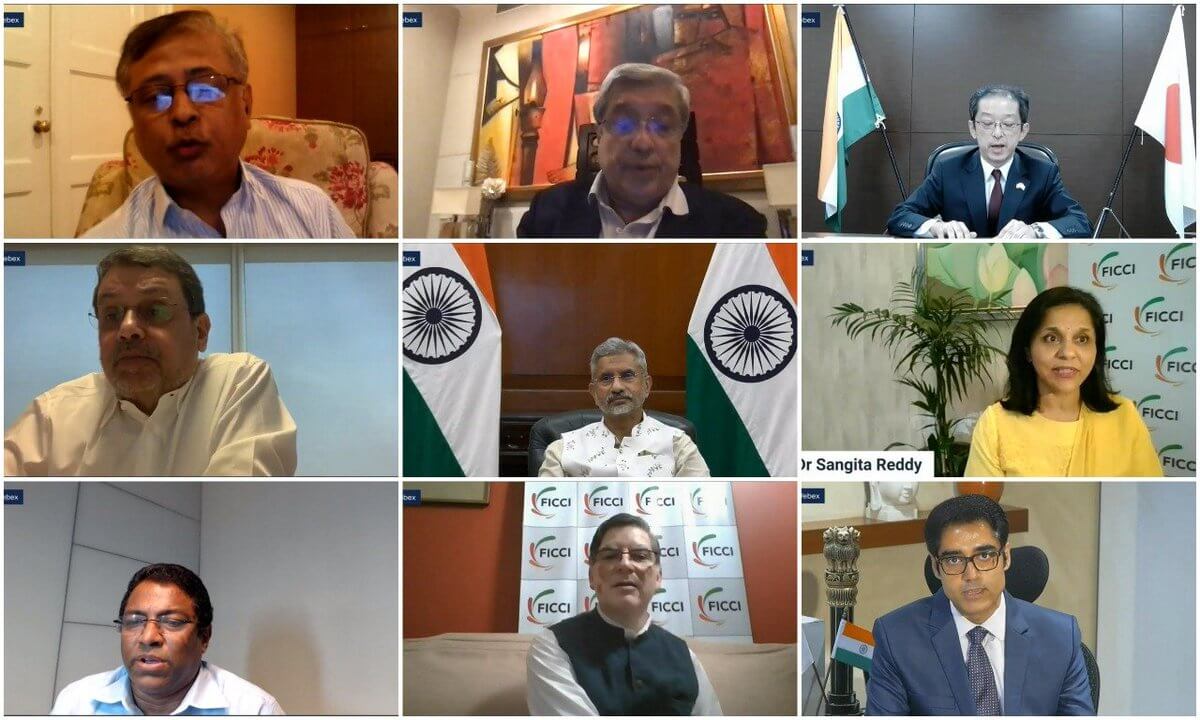On Friday, a virtual meeting was co-hosted by the Federation of Indian Chambers of Commerce and Industry (FICCI) and a law firm called Shardul Amarchand Mangaldas to mark the release of a report titled “India-Japan: Time to Seize New Opportunities”. The report spoke of the historical ties between Japan and India in terms of economics, trade, and commerce, and how the COVID-19 pandemic has only strengthened this relationship. It said, “[The] COVID-19 pandemic had provided great opportunities for the two nations and its businesses to join hands and forge a new alliance in terms of harvesting fruits of the demographic dividend that India provides, and push India towards becoming a major global manufacturing hub amidst the changing economic atmosphere.”
The virtual meeting was attended by S. Jaishankar, India’s Minister of External Affairs, and Toshihide Ando, the Deputy Chief of the Japanese Embassy in India. The two officials used this platform to discuss several areas where India and Japan intend to increase their collaboration. One such issue that was highlighted was that of working together in countries such as Myanmar and Bangladesh to promote development and connectivity. Jaishankar said that the India-Japan Act East Forum, which is responsible for several development projects in north-east India, will also be monumental in increasing India’s connectivity with Bangladesh and Myanmar. He said, “We’ve done a little bit of that in Sri Lanka and I think we’re today trying to see whether we can cooperate and coordinate more closely in Bangladesh and Myanmar.”
This comes at a time where India and Japan have both been stressing the importance of countering Chinese aggression in the Indo-Pacific region as they face “territorial threats” from China. India and China continue to struggle to successfully conclude diplomatic negotiations aimed at deescalating the ongoing border tensions along the Line of Actual Control (LAC) in Galwan. Japan and China are embroiled in their own ongoing territorial dispute over the Senkaku islands, with China constantly intruding on Japanese waters. Consequently, New Delhi and Tokyo have been working towards forming alliances with like-minded countries in the region to “enhance stability and security across Asia.” India and Japan have also increased their collaboration through the Association of South East Asian Nations (ASEAN), East Asia Summit, and the Quadrilateral dialogue.
The report also comes at the heels of the Acquisition and Cross-Servicing Agreement (ACSA), which was concluded by Satoshi Suzuki, Japan’s ambassador to India, and Ajay Kumar, India’s defense secretary. According to a statement by Japan’s foreign ministry, the agreement aims to pave the way for “smooth and prompt provision of supplies and services” between the Self-Defense Forces of Japan and the Indian army.
India and Japan to “Cooperate and Collaborate” in Myanmar and Bangladesh
The virtual meeting, hosted by the FICCI, was attended by S. Jaishankar, India's Minister of External Affairs, and Toshihide Ando, the Deputy Chief of the Japanese Embassy.
September 21, 2020

SOURCE: TWITTER
